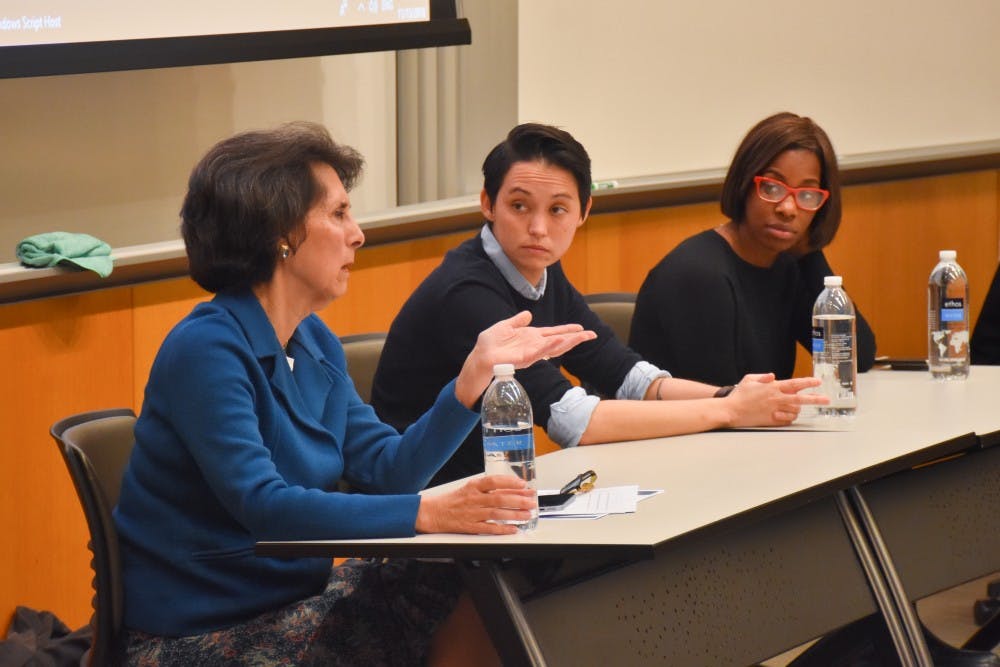Over 100 women were elected to Congress in last week's midterm elections, smashing previous gender records and ushering in a new class of female politicians.
The Penn Government and Politics Association teamed up with Penn’s American Enterprise Institute Executive Council to consider this “watershed moment” for women in politics and to discuss what obstacles still stand in the way of equal representation.
The event, entitled “Women, Power, and Politics,” took place at Huntsman Hall on Tuesday and featured a panel of three prominent female voices in fields ranging from female political empowerment to public opinion.
Panelist Anne Wakabayashi is the executive director for Emerge Pennsylvania, an organization which identifies and prepares female Democratic candidates to run for political office.
According to Wakabayashi, political representation is of the utmost importance because “every issue is a women’s issue.”
“When mothers are having their children taken away at the border, then immigration is a women’s issue. When we discuss raising the minimum wage, most minimum wage earners are single female heads of households. That’s a women’s issue,” Wakabayashi said.
Across the board, she said, from health care to defense, women will bring fresh perspectives to existing issues.
“This is why it’s so important to elect women, women of color, and queer people,” she said.
RELATED:
The wave of female candidates across the country has energized women voters at Penn
Penn grad Jennifer O’Mara joins record number of women running for office in 2018
Academics, activists, and students gathered at Penn this weekend to discuss women in politics
Jasmine Sessoms, founder of the She Can Win project at Penn, which helps women run for office regardless of party affiliation, echoed Wakabayashi’s message.
“Women of color realize that they are a high voting block and want to take their rightful place at the table,” she said.

AEI Senior Fellow and conservative American public opinion expert Karlyn Bowman emphasized that women win elections just as often as men at every level of politics.
“The issue is getting them to run,” she said.
The panelists came to a consensus that the main challenges women face are those which deter them from running, not those which prevent them from winning.
Sessoms and Wakabayashi stressed in their experience, female candidates are excellent fundraisers and campaigners once they’ve decided to run.
However, they said several factors stand in the way of them making this decision: persistent male incumbency, substantial gender socialization, large amounts of money in politics, and both care-taking and financial household obligations.
“Even women who work are still the primary caretakers of their children,” Wakabayashi said. “When you’re asking someone who has young children to run for state representative, you’re taking them away from a lot of their responsibilities.”
Additionally, Wakabayashi said, many qualified women who are the chief breadwinners in their families are hesitant to give up their already high-paying or healthcare-providing jobs because they feel responsible for their families.
Evidence also shows that women are socialized to be less likely to envision themselves in positions of power, and must overcome a confidence gap when considering a run for public office.
Sessoms said extremely qualified female candidates will sometimes insist they aren't suited to run, while males are less deterred by their shortcomings.
According to Sessoms, women need to be asked a multitude of times to run for office before they choose to.
“If you’re a woman in this room,” she said, “I’ll start by asking you once: run for office.”










